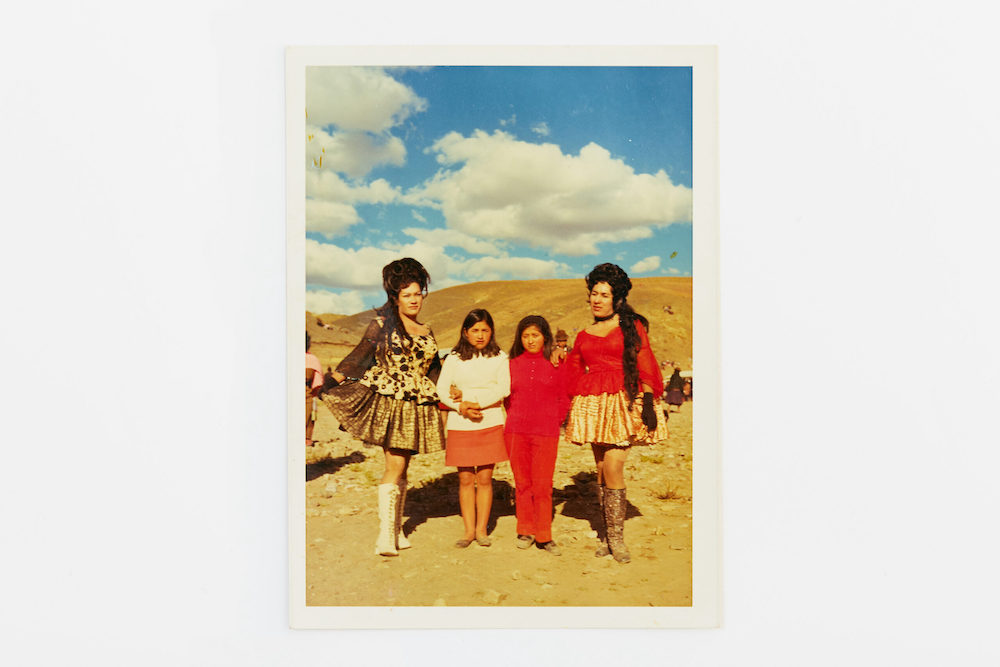Barbarella’s Kiss | Auto Italia
I looked at 40 or so small, dog-eared photographs, in a few brightly coloured vitrines, in a gallery one sunny afternoon in Bethnal Green, and got a glimpse into a totally different land - both physical and imaginative. Isn’t getting that sense of transportation the main reason you’d look at art in the first place? Debatable. But it’s a sense I got really strongly in this show, either way.
The time and place is Bolivia in 1960s and 1970s. The protagonists are a group of local performers who used mononyms like Barbarella, Ofelia and Liz, and dressed up as the folk figure La China Morena at carnival time to entertain the crowds. The photos of the performances that make up the exhibition, sourced from the queens’ own collections by the show’s curator David Aruquipa Pérez, are both familiar and strange.
 Ofelia and Liz at the Carnival of Oruro, Bolivia (1976)
Ofelia and Liz at the Carnival of Oruro, Bolivia (1976)
Familiar because letting loose at carnival time is a global trope - I’ve featured a similar theme on here recently when I wrote about Alia Farid’s video art. And art leveraging the transgressive power of trans identities is nothing new: what about the work of Nan Goldin and Andy Warhol, working at the same time as these photos were taken?
But those American artists, and the hard-bitten city queens they portrayed, are more immediately accessible to the typical viewer of the Auto Italia show, due to the closer overlap in cultural conventions. The Bolivian performers, in their hats and masks, are using a bunch of folkloric and cultural references that I can’t begin to guess at. Though the generally delighted expressions from the carnival crowds watching the queens caper in their elaborate outfits show that their first audiences definitely got it.
Outside of the party, the group also flirted with genuine danger: the exhibition’s title comes from the time when Barbarella planted a kiss on the Bolivian dictator’s cheek after a carnival in 1974, and got the shows banned for her troubles. In an interview, David also points out that most of the group had been disowned by their families, and spent time in prison for their activism.
Behind the clumpy heels and sparkly outfits, then, these queens were battle-hardened and resourceful. After the ban, they took their show out into the countryside, continuing to perform in villages and rural areas. That’s when my favourite photo from the show (above) was taken.
Ofelia and Liz, resplendent in towering wigs, mini skirts and slightly dusty boots, pose in a sun-blasted mountain landscape, a mad blustery sky above. In between, two girls, coming up to barely boob height compared to the queens, stand nervously, implacable and set expressions on their faces. The dynamic is unreadable, but the absolute incongruity of the different elements in the scene read to me as pure, high-altitude camp.
Or maybe that was my false impression, formed after looking up from the vitrine and being snapped back to the here and now, a world away from Ofelia, Liz and the others. The show wasn’t for me after all, it was for them. Time for another look.
Barbarella’s Kiss is at Auto Italia (London) 14 April - 11 June 2023